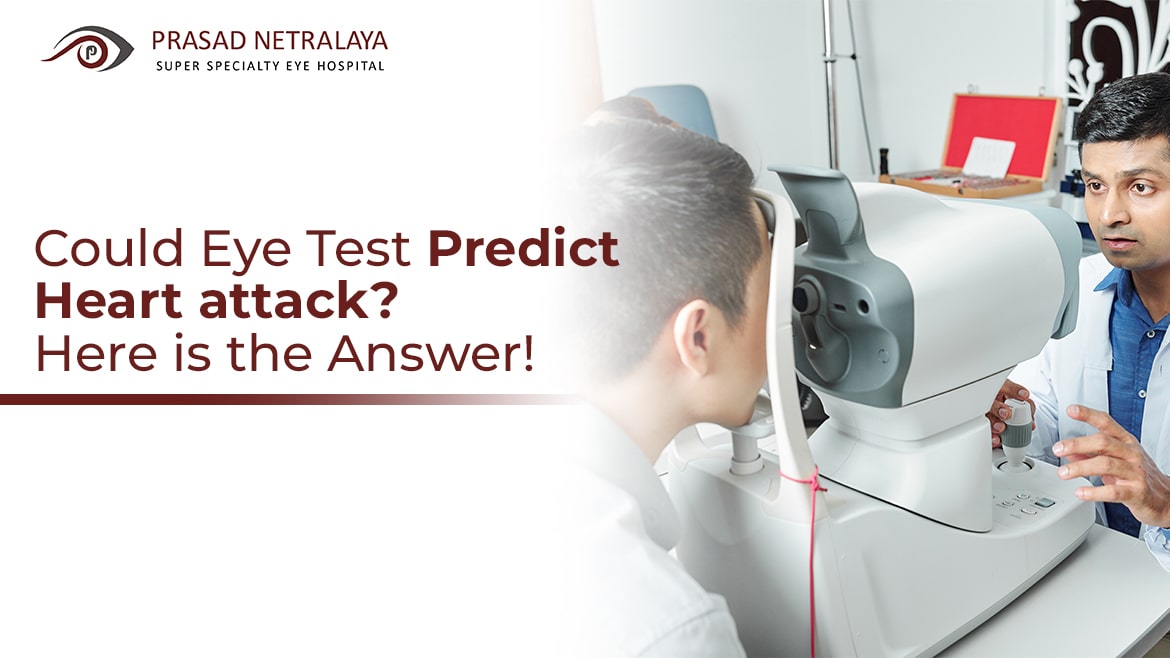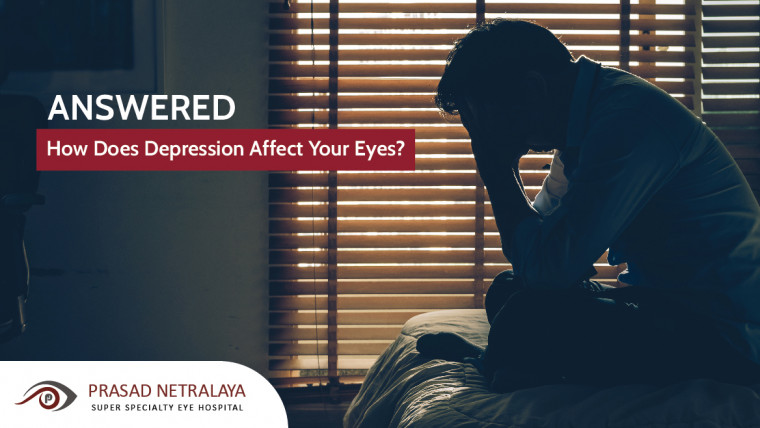There is an old proverb that goes “the eyes are the windows to the soul”. While there is nothing to prove how accurate this proverb is, the eyes certainly are windows into the workings of your body’s blood vessels, nerves, and connective tissues. But can an eye exam detect heart problems?
There is more to the eyes and heart attacks than you think. According to a new study, a noninvasive eye exam, when paired with other information, may be able to predict a person’s risk of having a heart attack. This study has identified a link between the retina’s vascular complexity and the risk of having a myocardial infarction or heart attack.
Table of Contents
What exactly is a heart attack?
A heart attack occurs when the flow of blood to the heart is substantially decreased or blocked. The blockage is mainly caused by a buildup of fat, cholesterol, and other substances in the heart (coronary) arteries. The cholesterol-containing fatty deposits are known as plaques. A plaque can sometimes rupture and generate a clot, obstructing blood flow. A shortage of blood flow can cause injury or destruction to the heart muscle, which is what comprises a heart attack.
Some of the common symptoms of a heart attack are
- Chest pain that may feel like something squeezing the chest.
- Pain or discomfort that spreads to the shoulder, arm, back, neck, jaw, teeth or sometimes the upper part of the stomach.
- Heartburn
- Indigestion
- Lightheadedness or dizziness
- Breathlessness
- Nausea
- Fatigue
In the first 6 months of 2021, Mumbai saw a six-time increase in the number of deaths associated with heart attacks. About 3,000 people lost their lives with around 500 people dying due to heart attacks every month from January to June. Heart attacks were responsible for over 23.8 percent (17,880) of the total 75,165 deaths registered in Mumbai up to June of last year.
.Read more: DEBUNKED: 9 Myths About the LASIK Eye Surgery
How can an eye exam detect heart problems?
Let’s get right to it. Can an eye exam detect heart problems? Well, according to The Guardian, researchers discovered that there could be an intrinsic connection between the eyes and heart attacks. They found that the pattern of blood vessels in the retina could assist in identifying those who are at risk of developing cardiac problems. The researchers calculated the fractal dimension using data from the UK Biobank, which contains medical and lifestyle records for 500,000 people. In a model, they incorporated the measure with additional characteristics such as age, gender, systolic blood pressure, body mass index, and smoking status.
After collecting retinal images, the research team looked at patients in the database who had suffered a heart attack, or myocardial infarction.
The average age for a first heart attack is 60. The research team found that their model had its best prognostic performance more than 5 years before a heart attack occurred. The researchers believe that in the future, a simple retinal exam will provide enough information to identify patients at high risk. This research was important in not only showing a direct relation between eyes and heart attack but also providing a diagnostic tool to accurately predict heart attacks through eye examinations.
What you can do to prevent a heart attack?
- Maintain a balanced diet
Try to have a balanced, ideally one that has low fat and high fiber with whole grains and plenty of fresh fruit and vegetables. Split up your meals into 5 portions in a day.
- Exercise more
Exercising regularly increases the efficiency of your heart and blood circulatory system, maintains a healthy blood pressure level and lowers cholesterol levels. Regular exercise reduces the risk of a heart attack because, like any other muscle, the heart benefits from it and is able to pump blood with less effort. Try going for a walk or go swimming as much as you can, as such aerobic exercises make the heart healthy.
- Decrease your alcohol intake
Avoid binge drinking at all costs, as it increases the risk of a heart attack.
- Maintain a healthy blood pressure level
Having a healthy diet that is low in saturated fat, regular exercise and taking medicine if required helps to keep your blood pressure levels in check. The ideal level of blood pressure should be less than 140/90mmHg.
- Keep blood sugar levels under control
Diabetes increases the chances of developing Coronary Heart Disease which could eventually result in a heart attack. Physical activity and watching your weight and blood pressure can help to maintain blood sugar levels. Blood pressure levels below 130/80mmHG should be maintained by a diabetic person.
Get your eyes checked frequently
Now that you know the connection between the eyes and heart attacks, you can be more cautious of sudden changes in eye health. Getting your eyes checked once in a while is important not only because it helps detect other ailments of the body but also to ensure that you have no issues with your eyes. Often people neglect to go to the eye doctor even when they face problems like twitching and eye pain which could be a sign of a bigger health problem. So, the next time your eyes give you trouble schedule an appointment at Prasad Netralaya, the best eye hospital in Karnataka. We have the best diagnostic and treatment facilities to identify and cure a host of eye and eye-related diseases.
Dr. Vikram Jain, M.S. had his medical training (MBBS) from Kasturba Medical College, Mangalore, India. He did his master’s in Ophthalmic surgery from Kasturba Medical College, Manipal. He currently manages the Glaucoma department of Prasad Netralaya hospital.



